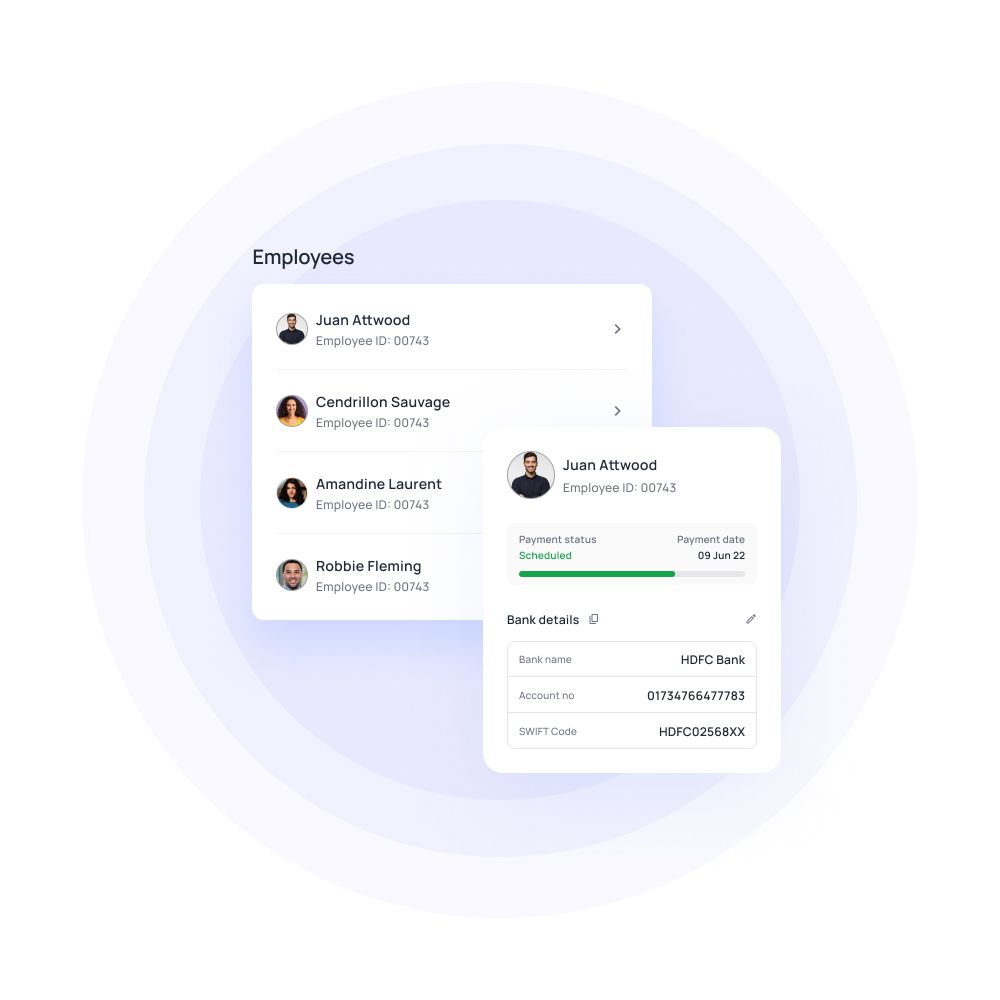👋 Exciting news! UPI payments are now available in India! Sign up now →
How to manage employee reimbursements under GST rule
The 2022 union budget was received with a variety of reactions. What the updates and changes are going to mean for entrepreneurs and businesses are being unraveled as the year continues to move forward.
The reimbursement of expenses under GST is one such aspect of the 2022 union budget that has raised some questions. All eyes are on how businesses are going to manage employee reimbursement under GST 2022 and we can’t wait to see how it rolls out.
GST rules on expenses incurred by employees
GST is a tax that is levied on the supply of goods and services in India. Main purpose is to streamline and consolidate the indirect tax regime that was in place before. The GST rules that govern expenses incurred by employees include.
Section 15 of the CGST Act
Employer and employee will be deemed to be 'related persons'. Accordingly, supplies by an employer to employees would be liable to GST even though these supplies are made without consideration since they are considered as related persons.
Schedule III to the CGST
Services by an employee to the employer in the course of or concerning his employment will not be considered as supply of goods or services and hence GST is not applicable on services rendered by an employee to employer.
Schedule I to the CGST Act
Transactions are treated as supplies even if the consideration is absent which includes supplies between related persons when such supplies are made in the course or furtherance of business.
Applicability of GST on employee reimbursements
The goods and services tax GST is levied on, quite literally, the supply of goods and services. GST on employee expense reimbursements can come into play in a number of different scenarios in the context of the purchase of such goods and services. Given below are the GST rules that govern general expenses incurred by employees.
Gifts to employees
Any gifts given to an employee by their employer above the value of INR 50,000 are taxable under GST rules. While the definition of a gift is not specified in GST rules section 122 of the Transfer of Property Act, 1882 specifies gifts as “the transfer of certain existing movable or immovable property made voluntarily and without consideration, by one person, called the donor, to another, called the done, and accepted by or on behalf of the done.
Employee reimbursement for purchase from registered dealers
Purchases made from registered dealers (dealers with GSTIN) by an employee, taxes are not levied if particular conditions are fulfilled. If the criteria given below are maintained, employers will also be eligible to utilize Input tax credit under GST to recover any taxes paid by the employee:
- The expenses incurred are for the furtherance of the business of the employer.
- Expenses are incurred by the employee in the course of or in relation to employment, and such expenses are reimbursed by the employer.
- The supplier has issued a tax invoice and has charged GST on such services. The tax invoice contains the name and GSTIN of the employer as the recipient.
Employee reimbursement for purchase from unregistered dealer:
Purchases made from unregistered or dealers without GSTIN will also not attract GST costs for the employee making the expense. If, however, the employee acts as an agent on behalf of the employer the scenario will be different, more on this case is given in point 5.
Notice pay recovery
According to GST rules any salary retained by employers for employees who don’t serve their notice period can also be taxed. GST on employees notice pay recovery is levied because notice pay recovery is understood as income that is generated via savings retained on expenses.
Reverse charge on employee reimbursement:
Any purchases made from an unregistered vendor by an employee acting as an agent on behalf of their employer will mean that the employer will have to pay GST as per the reverse charge mechanism (RCM). GST on employees' recovery is made here because it is the employer who is the recipient of these goods, services, or both and not the employee, who is simply acting as a purchasing agent. This could take the form of GST on traveling expenses as well when the employee is purchasing goods and services on behalf of the company while traveling for work.
Input tax credit on employee reimbursements
Input tax credit or ITC is a provision via which a business can recover taxes it has already paid on inputs at the time of paying tax on outputs. For example, if for outputs (i.e. final product) your tax payable is Rs 600 and for inputs (i.e. purchases) is Rs 500, you can claim ITC worth Rs 500, and your final payable amount will be Rs 100.
Given below are the conditions need to be satisfied for a transaction to be ITC claimable:
- The expense your employee made must have been incurred for business advancement or growth. A good example of this is ITC on traveling expenses when the employee is traveling for purposes related to work.
- The expenses need to be reimbursable and have to have a relation with employment. An example of this is ITC employee benefits that employees get as a part of their contract.
- A supplier-issued GST invoice must accompany the transaction. The GSTIN and your business name (as the recipient) must be mentioned on this invoice.
For instance, ITC on insurance or repair, maintenance of motor vehicles can only be available when the vehicle is utilized either for the supply of vehicle, transport of passengers.
Manage employee reimbursements with Volopay
More automation equals less effort and better results, this is applicable to the reimbursement of expenses under GST too. With Volopay you can make employee expense reimbursements, and therefore tax filings, as easy as clicking a few buttons. Volopay is an expense management software that functions as an all-in-one control center for your business’s finances. It comes equipped with a free, instant employee reimbursement feature that works like magic.
Employees can be issued Volopay corporate cards with which they can make any purchases they need to for business. You can also allocate funds to these cards for different business expenses. What’s more, is that all expenses made via Volopay are tracked and reconciled in real-time. This can save you a lot of headaches when getting your books in order before tax time.

Frequently asked questions
While employees are exempted from paying GST, companies may have to pay GST on a certain portion of the salaries paid to their employees.
While GST on salary is not directly applicable, a new AAAR tax ruling has made it mandatory for companies with offices in different cities to pay a GST percentage on salary paid to head office employees for their services provided to branch offices.
You can reimburse employees on a per diem basis where you can allocate ‘per day’ funds to employees for particular expenses. Another approach is where employees make expenses out-of-pocket and produce proof of purchases post which companies pay them back, i.e. reimburse that expense. The best idea, however, is to get software that can automate the entire process.
Volopay’s reimbursement features automate a lot of admin work that you would have otherwise had to have done by salaried employees. Not only does this directly cost you money, time, and effort but it also draws resources away from other value-creating channels. Volopay eradicates all the hurdles that increase expense processing costs and therefore making the whole process cheaper.
The entire sum you have paid for the insurance as a premium can be claimed. This includes GST on employee insurance that you have paid as well.








Trusted by finance teams at startups to enterprises.
Bring Volopay to your business
Get started now